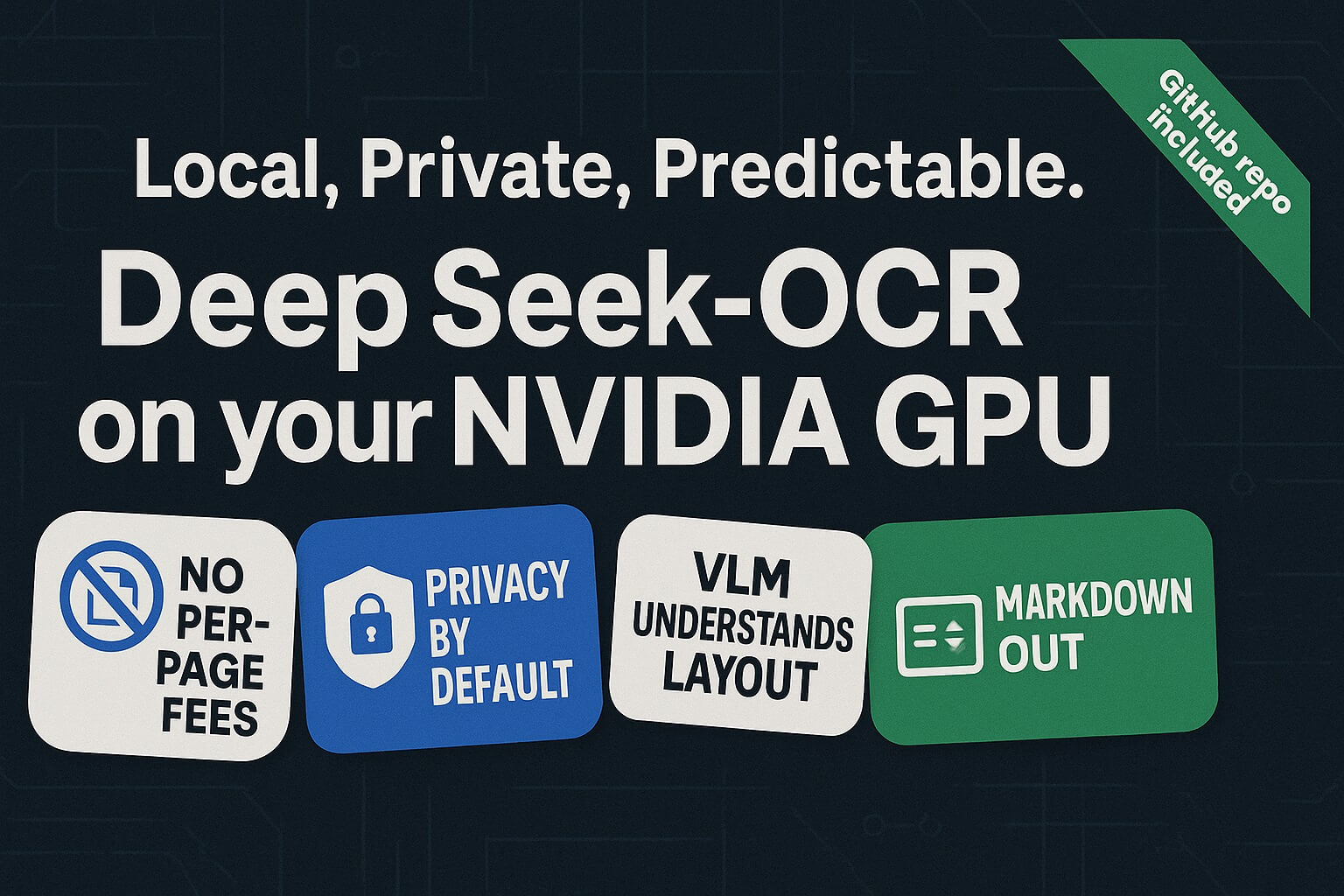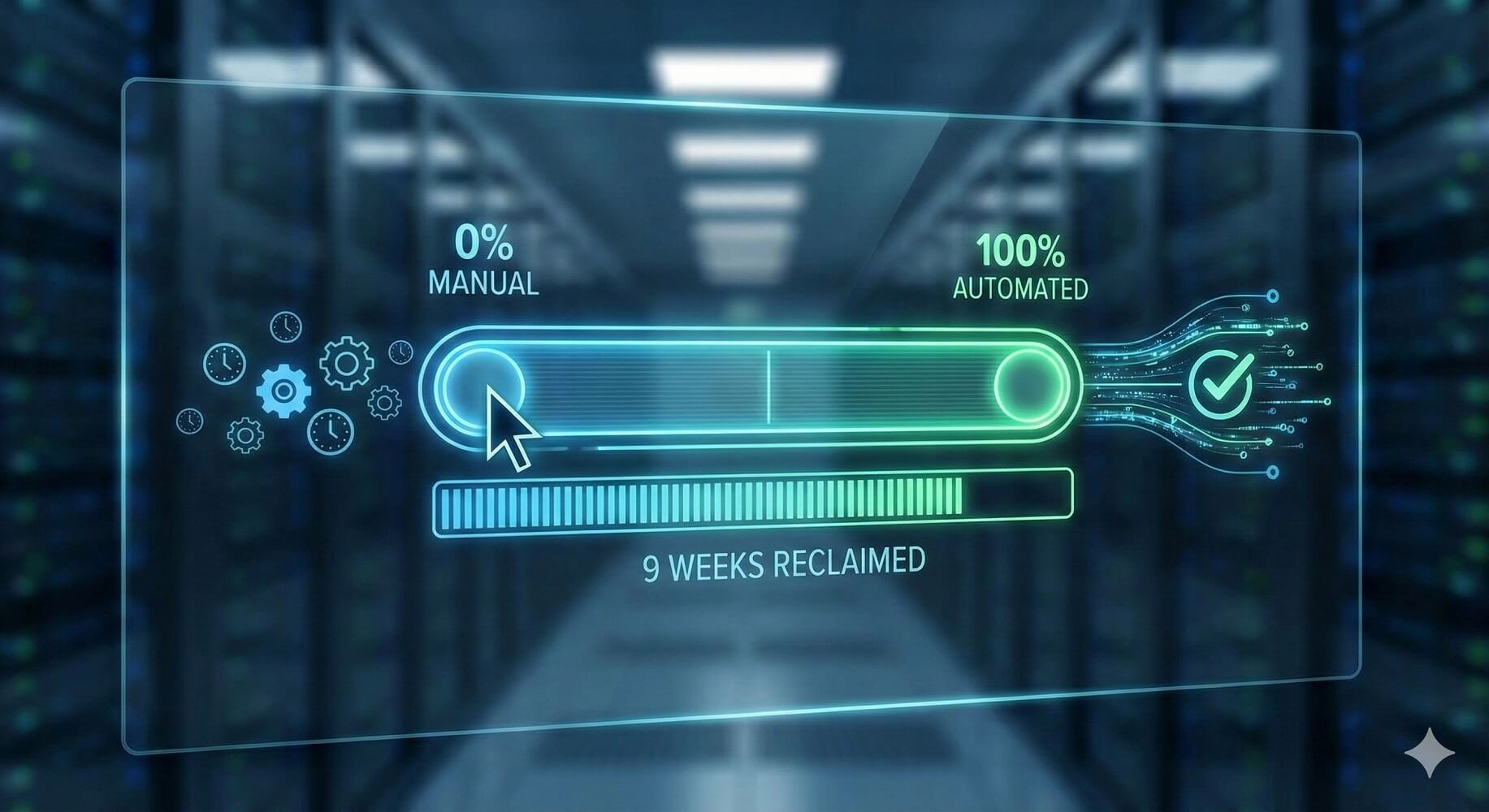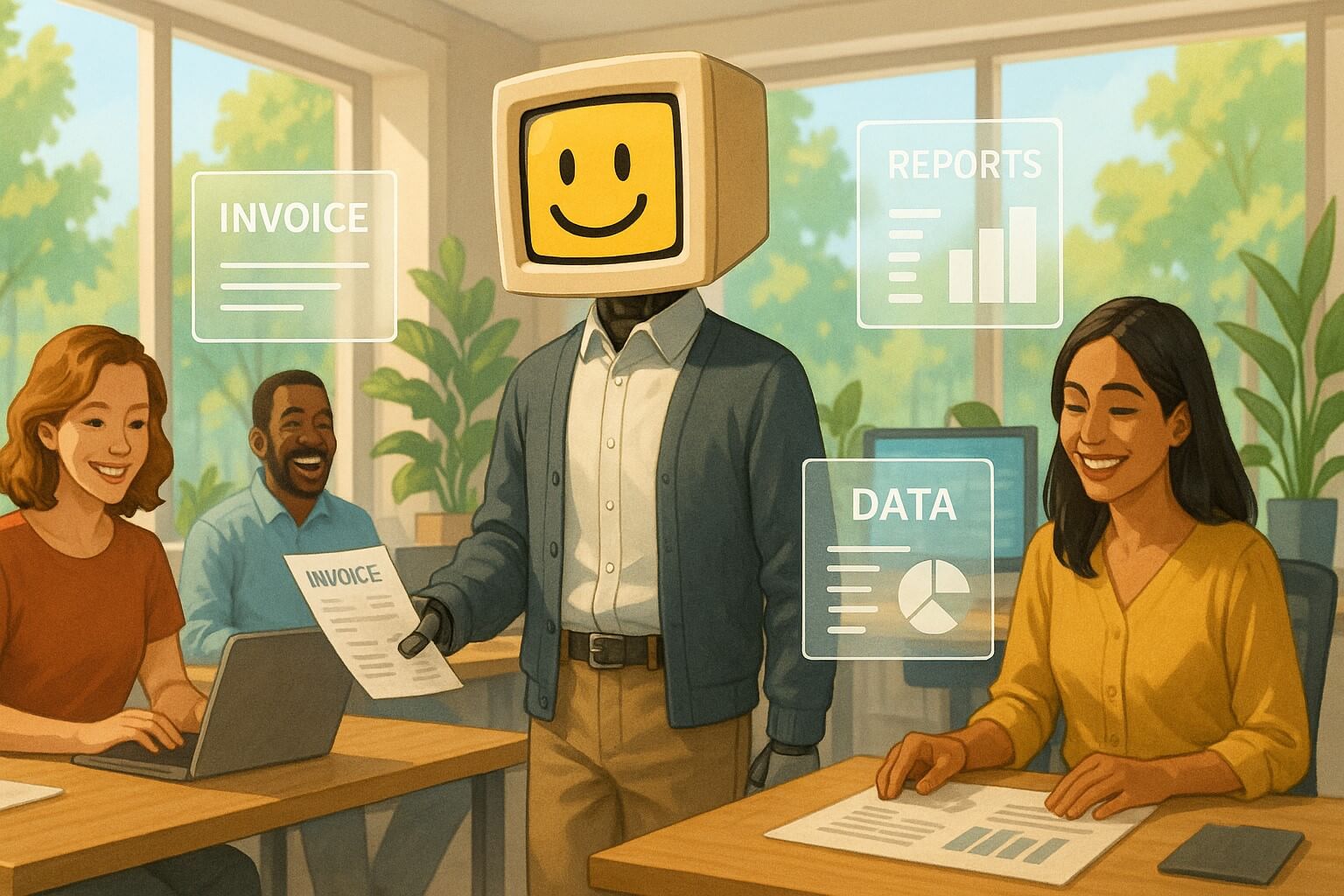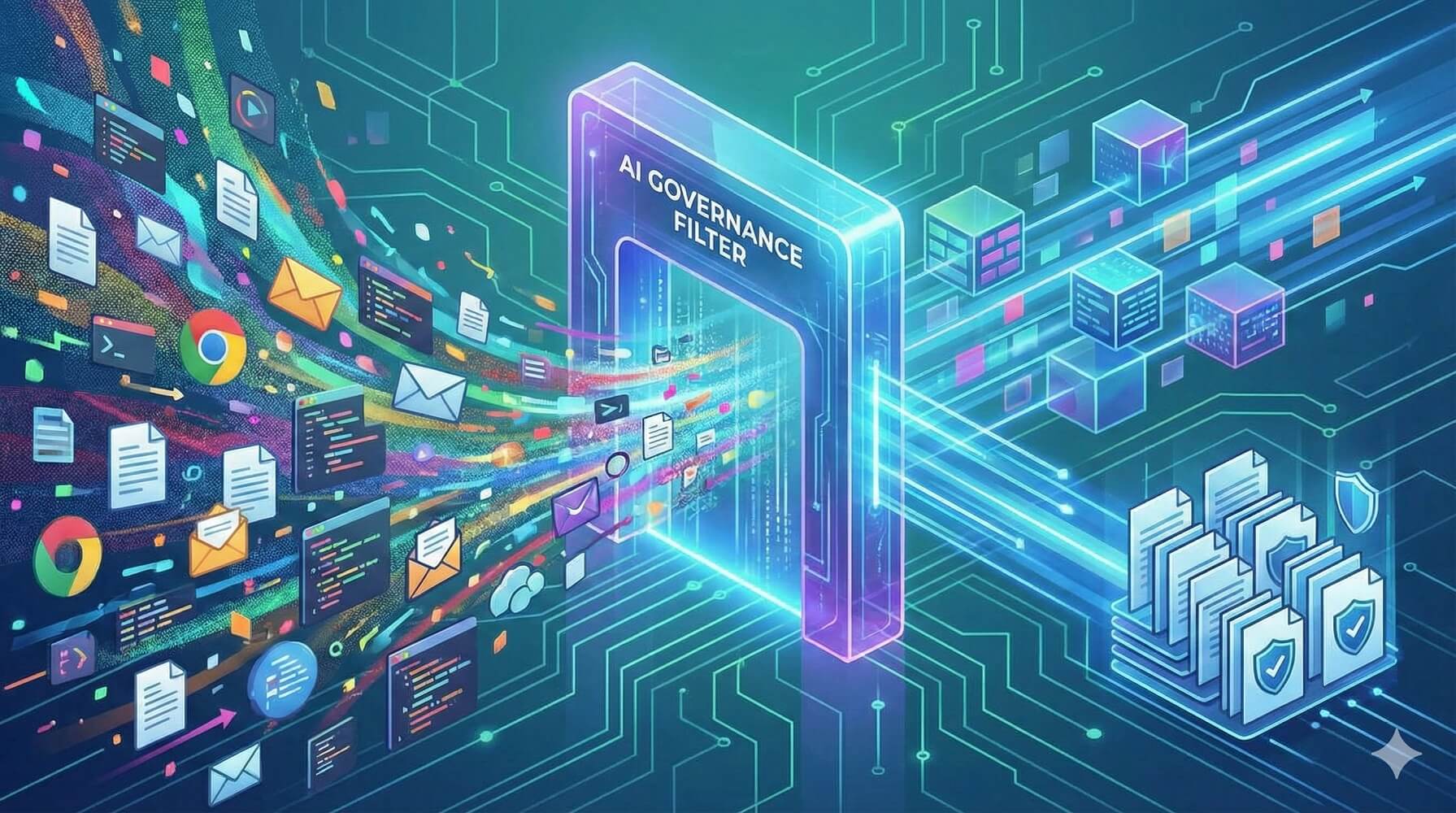DeepSeek-OCR: Enterprise-grade document processing on your own hardware
DeepSeek-OCR is an open-source VLM you can run locally on NVIDIA GPUs. Strong accuracy on screenshots and handwriting, private by design, and no per-page fees. Try it on your PC today!

Cloud OCR works, but it can be costly at scale and raises privacy questions. Per-page fees add up, and sending sensitive documents to third-party servers isn’t always acceptable. For many organizations, those trade-offs are now optional.
Enter DeepSeek OCR. It’s an open-source visual language model (VLM) you run locally on your NVIDIA GPU. In plain language: it reads documents as both images and text, so it understands layout while extracting content without a single page leaving your network.
I made a public GitHub repository that makes it easy for you to run DeepSeek-OCR on your own Windows computer, so long as you have an NVIDIA graphics card. Check out my repo here: https://github.com/oscar-o-oneill/deepseek-ocr-windows
The VLM advantage (why this is different)
Most AI you’ve heard about are LLMs built for text. DeepSeek OCR is a VLM, designed to process visual information alongside language. That means it doesn’t just “OCR the pixels and hope for the best”, it reasons about page structure, headings, tables, and formatting as it pulls text. The result is cleaner, more usable output on real-world business docs.
Real-world performance (and how to make it faster)
On a Windows machine with an NVIDIA RTX 3090 (24 GB VRAM), I see about ~20 seconds per page including model start/stop. That’s already practical for everyday batches, and there are easy wins to improve it:
- Keep the model warm: process in batches to avoid constant start/stop overhead.
- Use mixed precision: FP16/bfloat16 often speeds things up with minimal quality trade-offs.
- Pre-process images: rotate to upright, crop margins, and keep a sensible max resolution to reduce wasted compute.
- Feed the GPU efficiently: parallelize file I/O and queuing so the GPU isn’t waiting between pages.
Quality in practice (what works best)
- Screenshots and clean exports: near-perfect in my tests; the Markdown output is tidy and easy to reuse.
- Phone photos of paper: good, but orientation and lighting matter, upright, high-contrast images reduce errors.
- Handwriting: surprisingly solid; it handles notes and form entries better than you’d expect.
- Settings that helped: Markdown mode consistently produced the cleanest structure; the “Gundam” quality preset felt reliably accurate in my runs.
Why local processing matters
- Privacy & control: Contracts, financials, and proprietary data never leave your environment.
- Predictable costs: After the GPU investment, the marginal cost per page approaches zero.
- Operational independence: No vendor quotas, rate limits, or data-handling caveats.
Note: Cloud OCR still has a place. For certain document types and edge cases, cloud OCR capabilities can be much more accurate than DeepSeek-OCR, and if you don’t have a suitable GPU, managed services may be the fastest path to production.
Get started quickly (Windows + NVIDIA)
I published a small wrapper so you can get up and running with minimal setup. If you have an NVIDIA GPU:
- Clone the repo:
git clone https://github.com/oscar-o-oneill/deepseek-ocr-windows - Follow the README: it installs dependencies, checks your NVIDIA/CUDA stack, and sets sensible defaults.
- Run the starter command: point it at a folder of PDFs/images and export Markdown you can search or feed into downstream tools.
You’ll have local, private OCR in minutes.
The bigger picture
DeepSeek OCR shows that sophisticated AI document processing no longer requires cloud lock-in or enterprise budgets. Because it’s open source, you can integrate it, tweak it, and deploy it however your workflow demands: on-prem, in VDI, or on a secure workstation.
For business teams evaluating document pipelines and developers building products that need OCR, DeepSeek OCR is a compelling alternative: strong accuracy on common documents, local privacy, and zero recurring per-page fees. If data protection and cost predictability matter to you, it’s absolutely worth a trial run.



